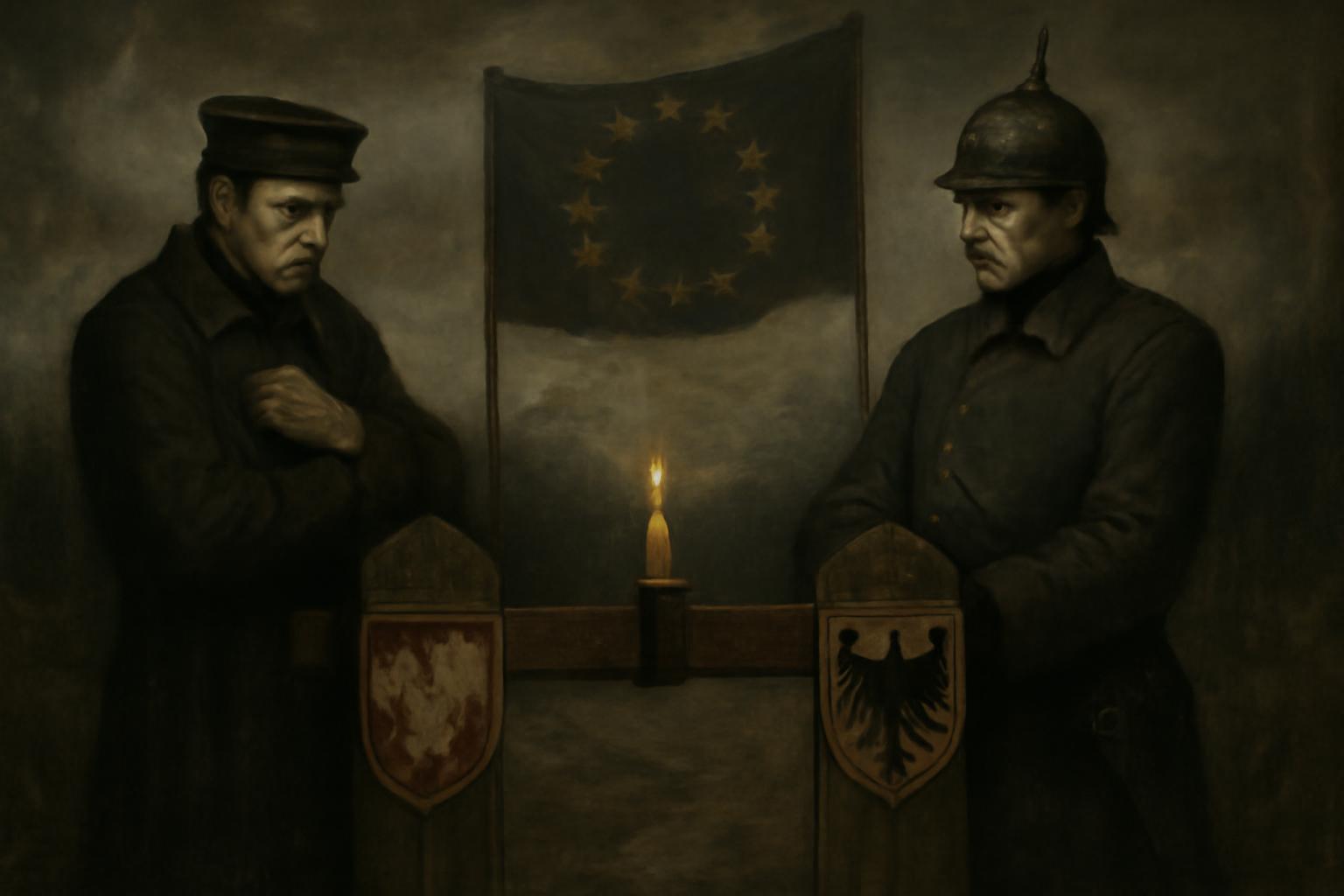A slow, shuddering tightening of the iron girders along Europe’s battered spine—Poland extends its border controls with Germany, refusing the dissolution of boundaries, clinging to the battered remnants of autonomy. “A wall against the chaos,” they murmur, as if the river Lethe could be commanded to reverse its flow. The tallying of bodies and vehicles, the clinical enumeration of those refused entry, only underscores the relentless arithmetic of suspicion. With almost funereal precision, nearly a quarter-million souls are scrutinized; every passage met with a glance measuring not only legality but the possibility of contamination.
Rome’s ancient limes once stood as sentinels against the unknown, but here, Poles and Germans both raise their palisades out of fear—of the stateless, of the other, and, perhaps most tragically, of each other. That the patrols, right-wing and civilian, now contribute to this border peripeteia in a tragic chorus is itself a grotesque parody of Sophocles; the wisdom of the polis is lost beneath the vociferous cries for security, as if one tuft of grass atop the ruins could forestall fate. “Prevent the crossing,” says the minister; yet what is truly prevented but the ancient dream of Europe as something greater than a market of mutual mistrust, something nobler than a ring of searchlights?
Is not this doubling-down—the near-total density of surveillance, the ritualistic exchange and rejection of human beings—merely the next agon in the grand tragedy of a continent in eclipse? Germany and Poland, erstwhile antagonists and lovers in the moribund play of European history, now find their lines reduced to bureaucratic lamentation. Here is Nietzsche’s maxim reversed: those who gaze long into the abyss of border security find the abyss mechanized, digitized, densified—but no less hungry.
And underneath these maneuvers, the mythic figure of the migrant lingers: the scapegoat of the age, an Orestes pursued across territories, bearing on his back not just the hope for a new home but the entire tragic weight of a civilization unwilling to reconcile its ideals with its fears. The Schengen dream shatters with a dull thud, and what remains is but the sorrowful vestige of Western unity—each nation turning inward, Orpheus-like, forever glancing back at lost Eurydice, forever losing her.
Thus, the slow decay continues, brick by bureaucratic brick, each measure taken not for the sake of the living, but to stave off the ghost of chaos that modern Europe cannot exorcise. The West, in its anxiety and decrepitude, finds no answer—only a poignant, tragic perseverance in the face of decline. The gods have departed, and in their absence, we are left only with the hollow rituals of administration, the flickering shadows on the walls of Plato’s cave, and the echoing laughter of tragedy.
